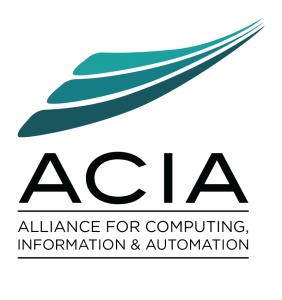
Charles Wallace, Associate Professor of Computer Science and member of the ICC’s Center for Human-Centered Computing, has been appointed Associate Dean for Curriculum and Instruction for the College of Computing, effective immediately. Wallace has been teaching in the Department of Computer Science for 19 years, and he has a long track record of education research and building collaboration with Cognitive & Learning Sciences, Engineering, Humanities, and Social Sciences.
“Chuck brings to his new role an extensive breadth of experience that spans from outreach to curricular development to collaborations with multiple units across campus,” says Adrienne Minerick, dean of the College of Computing. “In this new role, he will help build campus collaborations to create additional pathways for Michigan Tech students to engage with computing curricula, and facilitate conversations within the College of Computing that enable creative, agile options for our students.”
“Barriers between computing and other disciplines are artificial and unproductive,” Wallace says. “Computing competencies are essential for Michigan Tech graduates in all fields, and the College and University should commit to building educational options housed in the College of Computing but available and accessible to all students.”
Wallace adds that students in the College of Computing should be free – and actively encouraged – to explore application areas where their skills can be used. He also wants to explore ways to build flexibility into Computing academic programs, maintaining the solid technical core that Michigan Tech graduates are known for, but also allowing students to pursue applications of their computing competencies in other disciplines.
Vision Statement from Charles Wallace:
Here are a few points that I consider vital to the future of computing education, based on 19 years of experience in the Computer Science Department, a long track record of education research, and extensive collaboration with Cognitive & Learning Sciences, Engineering, Humanities, and Social Sciences.
Barriers between computing and other disciplines are artificial and unproductive. Computing competencies are essential for Michigan Tech graduates in all fields. The College and University should commit to building educational options housed in the College of Computing but available and accessible to all students. This will require an earnest and focused investment in personnel – we cannot do it solely with the current cohort of instructors, who are already stretched thinly with increased enrollment in core computing programs.
Conversely, students in the College of Computing should be free and even encouraged to explore application areas where their skills can be brought to bear. Complex degree requirements can hinder such exploration. We should explore ways to build flexibility into our programs, maintaining the solid technical core that Michigan Tech graduates are known for, but also allowing students to pursue applications of their computing competencies in other disciplines.
Computing students are citizens, not just producers. The degree programs in Michigan Tech’s Computer Science Department have a long and venerable tradition of preparing students who can “produce” – hit the ground running in the workplace and build high quality solutions. That is a precious gift, and we should not deprive future students of it – but the future demands more. Our world is increasingly dominated by computing – and by extension, dominated by human beings who understand computing. Michigan Tech graduates of the College of Computing must be known not only for the technical “value” that they produce, but also the ability to question and critique digital technology, to be empathetic and articulate ambassadors and leaders in the new digital order of the future.
There are two promising ways in which we can build better computing citizens. First, an awareness of the social and ethical consequences of computing must be woven into our curricula, not just taught as external service courses. Second, service learning is a way to expose students to the human contexts of computing technology. There are many ways to get students involved in our community, but these have not been harnessed outside of ad hoc outreach efforts. Interaction with the community should be built into the academic experience of computing students.
Computing competencies include values and attitudes, not just skills and knowledge. Alumni of our degree programs acknowledge that collaboration and communication are essential components of their professional lives. These competencies involve not only skills but also values and attitudes – willingness and even eagerness to engage with others, resilience in the face of uncertainty or ambiguity, and adaptability in the face of changing requirements. To prepare students for the highly collaborative computing workplace, courses in the College of Computing should embrace the opportunities and challenges of working in diverse teams. As with ethics, issues of teamwork and communication must be integrated into “disciplinary” courses, not left to service courses or external experiences like internships.
These curricular pathways hold promise not only to develop competent computing professionals of the future, but also to attract a more diverse constituency to the College of Computing student body.
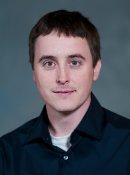


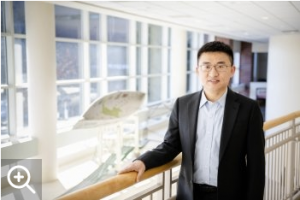

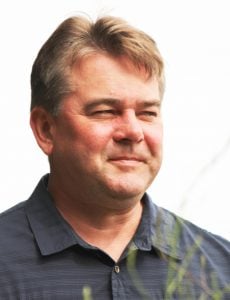
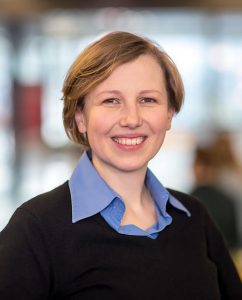 The Institute of Computing and Cybersystems (ICC) and the Michigan Tech Visiting Professor Program will present a seminar by Dr. Anna Wilbik on Thursday, October 3, starting at 3:00 p.m., in ME-EM 112 . A reception will follow and refreshments will be served. The title of Dr. Wilbik’s seminar is, “The explainability challenge in descriptive analytics: do we understand the data?”
The Institute of Computing and Cybersystems (ICC) and the Michigan Tech Visiting Professor Program will present a seminar by Dr. Anna Wilbik on Thursday, October 3, starting at 3:00 p.m., in ME-EM 112 . A reception will follow and refreshments will be served. The title of Dr. Wilbik’s seminar is, “The explainability challenge in descriptive analytics: do we understand the data?”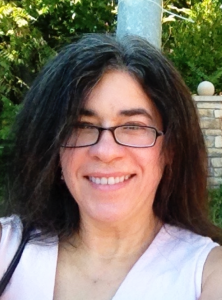 The Department of Mathematical Sciences and the College of Computing will present a lecture on high-performance computing by Dr. Laura Monroe from the
The Department of Mathematical Sciences and the College of Computing will present a lecture on high-performance computing by Dr. Laura Monroe from the 
